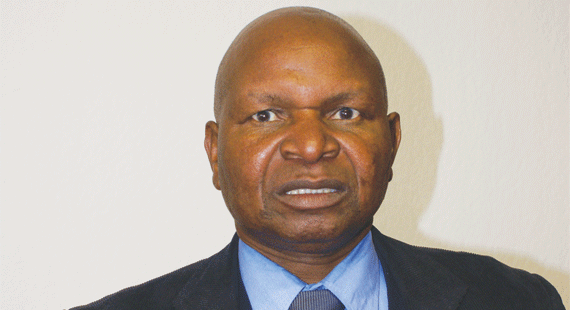
THE STORY of the blood pressure-raising remuneration package that the financially-broke Zimbabwe Broadcasting Corporation (ZBC) was and is — as he is contractually still on the corporation’s payroll — paying its chief executive officer (CEO) Happison Muchechetere featured prominently in all the country’s daily newspapers yesterday.
In the wake of these revelations, a lot of people have rushed to hit at Muchechetere, but is he the real culprit and should he shoulder all the culpability?
A third, albeit minor, issue which must be answered of course is that while focus is now on the $40 000 or so per month package Muchechetere was and continues to command, the true and real total cost to the corporation is way above this amount.
The correct quantum should include all the hidden costs ZBC incurs — for example what type of motor vehicle or vehicles is the suspended CEO driving and what are the maintenance costs thereof; or what is the true and real cost of, as is now known, an unlimited fuel allocation and all the other pecks that he is paid.
The biggest and most critical issues that the Muchechetere case raises is not how much CEOs of our parastatals are paid, but the board composition and board performance of the boards of directors of State-owned enterprises in Zimbabwe.
Of course, the same issues are also pertinent, although less so, to private sector companies and corporations.
The ZBC board has now been suspended, and quite rightly so, and this is the board that must shoulder most, if not all, responsibility for the astronomically skewed remuneration distribution at ZBC.
Both the members of the present but suspended board and all past members who have been in the board since the appointment of Muchechetere as CEO must bury their heads in shame — what has been revealed clearly shows these people have no inkling whatsoever of corporate governance. In this case it is not worth talking of good or best practice corporate governance!
- Chamisa under fire over US$120K donation
- Mavhunga puts DeMbare into Chibuku quarterfinals
- Pension funds bet on Cabora Bassa oilfields
- Councils defy govt fire tender directive
Keep Reading
Equally to blame are the top officials of the Information ministry that were in office before the appointment of Jonathan Moyo and Supa Mandiwanzira — and they include the immediate past minister and his deputy as well as the ministry permanent secretary.
ZBC board of directors, indeed the board of directors of any institution or company, has key responsibilities in its performance and among these is setting and approving the remuneration of the CEO, specifically, and the remuneration levels of the rest of the workforce in general through its remuneration committee, a key and necessary committee of any board worth its salt.
In other words, board chairman Cuthbert Dube and the rest of his board failed dismally in their performance as a board, especially in approving such a remuneration package for the CEO.
Key corporate governance tenets as regards remuneration are equity, fairness, transparency and the ability of the company to pay.
International norms on equity and fairness guide that the ratio of the remuneration of the lowest paid worker to that of the highest paid worker should not be worse than 1:12. In other words, where the lowest paid ZBC worker gets a dollar the CEO should get $12, this is the optimal ratio internationally.
This is clearly not the ratio at ZBC and this happened on the watch of Cuthbert Dube and his board. Transparency was also certainly something nonexistent in the board — if there was transparency, even of the barest minimum level, the board’s remuneration committee would not have approved, and forwarded for board approval, such a skewed distribution and the workers’ committee, which should always be involved in remuneration issues, would surely have raised noise.
There is no need to harp on the aspect of ability to pay for it is clear that ZBC did not have the ability to pay what they are paying their CEO — this is one of the reasons they are not able to pay the rest of the workers on time.
Also relevant to ask is what the board members got in board allowances if they could approve such things!
An additional factor that the board does not seem to have considered is that generally for a well managed and profit-making company, staff costs should not exceed 40% of the revenues the company generates.
The figures that have been made public, of the staff costs and revenues at ZBC, show that either the board did not have a clue whatsoever of the financial performance of the corporation or, which is most likely, chose to nonchalantly ignore these.
It also appears the board did not pay due regard to the ramifications of what it was approving and allowing to happen. There is also an issue of accountability — the board of any company is accountable to, first and foremost, the shareholders and also to stakeholders — and key among the stakeholders are the company’s workers.
What this speaks to is that the board must explain its actions and decisions to shareholders.
This does not appear to have happened and, if this did not indeed happen, questions must be asked as to who the board reported to.
If the board did in fact apprise the ministry of its actions and decisions, then the question of accountability, and hence responsibility, should also be answered by the former Information minister and his top management.
If the board did not account for its actions and decisions then the ministry, as the appointing authority and the representative of the shareholder, should have demanded, and received, accountability.
Hopefully one day we will know who failed in accountability — the board or the ministry.










